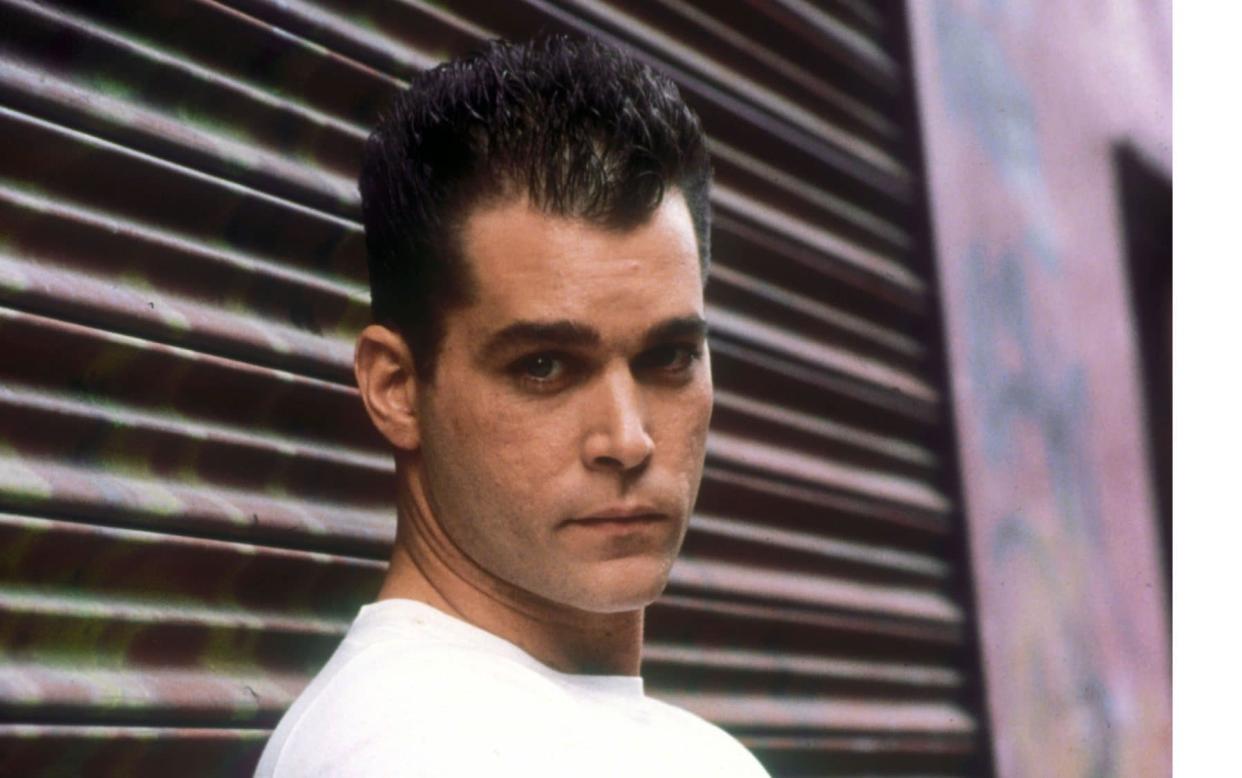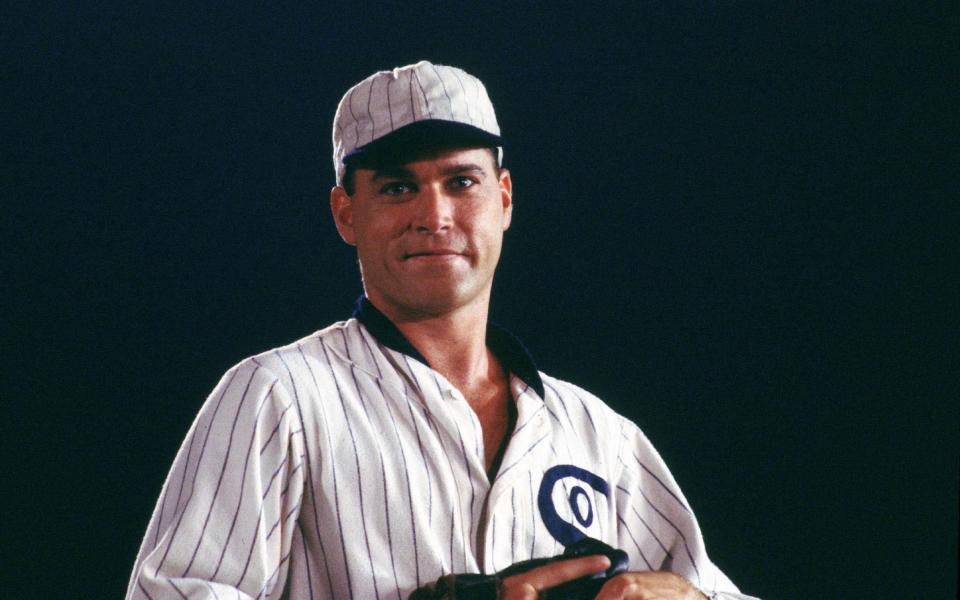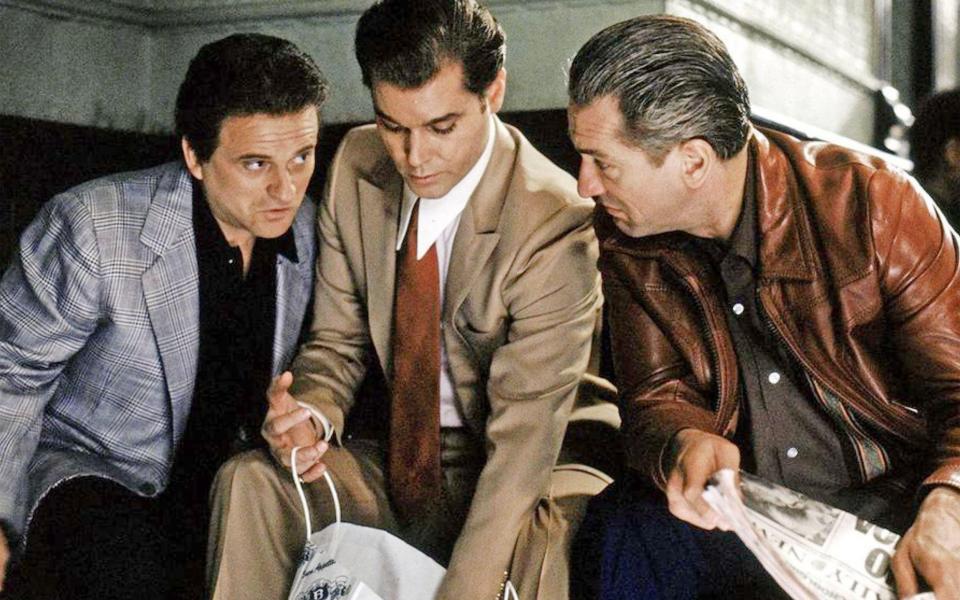Playful yet poisonous, Ray Liotta was the last man you’d want to mess with

Ray Liotta exploded into films like a primed grenade in Jonathan Demme’s Something Wild (1986). He was Ray, the ex-con husband of Melanie Griffith’s runaway heroine, and the last man in Florida you would ever want to mess with.
Liotta, who has died at 67, exuded a playful-yet-poisonous, let’s-see-how-this-pans-out aura of danger that could get truly nasty at any moment; he seemed, near the end of Demme's film, almost childishly impressed by his own mortal stabbing. For practically his whole career, this would become the Liotta forte – variations on the theme of keep-your-distance corruption, often playing bad cops or gangsters who give into their worst impulses.
Something about Liotta, with his matinee-idol lashes and reptilian charisma, was apt to make us uneasy. It was rare for him to play an uncomplicatedly heroic part – his cameo as the baseball legend Shoeless Joe Jackson in Field of Dreams (1989), a film he confessed to never watching as he found the script such a corn-fest, is the exception that proves the rule.
In his emerging career, the rare films where he played a straightforward lead – No Escape (1994), Unforgettable (1996) – had a habit of flopping. Then again, he’s really very charming as a shady romantic foil to Sigourney Weaver, in the crime comedy Heartbreakers (2004).
As an antihero, he was forever defined by his starring role, of course, in the immortal Goodfellas (1990). Henry Hill is not alone among Scorsese’s main characters in being a thoroughly nasty piece of work, but the freshness of Liotta’s casting was crucial for dramatic tension: as a relatively unfamiliar face on screen, and such a strikingly handsome one, he’s the wise guy among this lot we might briefly mistake for being a nice guy.

Not for long. It was both a career-making performance, and a turn which locked down perceptions of Liotta forever more – that unsavoury cackle of his, the brutal treatment of Lorraine Bracco, the jittery basket case he becomes by the end.
No wonder filmmakers were itching to get him back on psycho duties as quickly as possible – roughing up Kurt Russell’s smug yuppie, for instance, as the predatory cop with designs on Madeleine Stowe in Jonathan Kaplan’s by-the-numbers suspense thriller Unlawful Entry (1992).

He reached a point of supreme self-parody come Turbulence (1997), a so-bad-it’s-good turkey in which he plays a serial killer/rapist who hijacks a passenger jet, and gives Lauren Holly’s flight attendant the worst day of her life.
All the while, Liotta was still capable of a haunted complexity in his acting, as he proved in the same year’s Cop Land, giving us one of his most nuanced accounts of moral turpitude with a badge, and certainly not the worst specimen among that film’s many rotten apples: he’s the only one who has Sylvester Stallone’s back. It’s a major performance which should have got him awards attention; his hoist-by-his-own-petard mafioso Markie in Killing Them Softly (2012) was nearly as effective. (The only significant nod Liotta ever got was a Golden Globe nomination for Something Wild.)
Famously leery of interviews, with a tendency to snap or say almost nothing, Liotta always claimed it wasn’t true that he’d turned down The Sopranos, and had a chance to lay all that to rest when he showed up playing twins – one terrifying, the other waxing philosophical – in last year’s excellent Sopranos prequel, The Many Saints of Newark.
After a ton of stock roles in little-seen action thrillers, this was a pertinent reminder of what electricity Liotta could bring to a well-tailored script. So was his delicious part as Adam Driver’s second defence lawyer in Marriage Story (2017), a masterclass in gritted-teeth anger management.
These two films alone seemed to be hinting at a Liotta revival of sorts, which the world would certainly have welcomed. It’s part of what makes the suddenness of his death at such a young age especially awful to fathom.

 Yahoo News
Yahoo News 